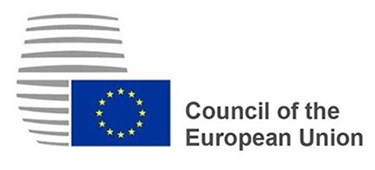EU Council Proposes Tougher Requirements On Medical Devices, In Vitro Diagnostics
By Jof Enriquez,
Follow me on Twitter @jofenriq

Medical device companies will operate under a stricter regulatory environment in Europe following the approval of new regulations governing medical devices and in vitro diagnostics by the Council of the European Union. The regulations, debated for years, introduce numerous amendments to earlier proposals to overhaul existing regulatory rules in Europe via new legislation.
In a recent meeting of the Employment, Social Policy, Health and Consumer Affairs Council (EPSCO), all EU member states, except Germany and Poland, validated a legislative package amending the current Medical Devices Directive, the Active Implantable Medical Devices Directive, and the In Vitro Diagnostic Medical Devices Directive, according to Lexology.
The Council's package introduces more amendments to an earlier proposal by the European Parliament, published in October 2013, which changed provisions in the original draft regulation, made by the European Commission in September 2012. The Council now will have to finalize the recitals of the proposed regulations before trialogue negotiations between the Council, the European Parliament and the European Commission commence this autumn, reports Lexology. The negotiations are the final step before enacting the proposed legislation.
After the Council adopted its general approach in the recent EPSCO meeting, European Council President Guntis Belēvičs called the move "a decisive step forward to improve patient safety and strengthen European competitiveness," according to Regulatory Focus.
The Council proposes stricter requirements on medical device manufacturers, who would be required to:
- Create a postmarket surveillance system appropriate to a device's type and risk class
- Submit periodic safety update reports (PSURs) akin to pharmaceutical requirements
- Appoint a person with "requisite expertise" in the field of medical devices to be responsible for regulatory compliance
- Respond more quickly to public health threats or deaths linked to medical devices
- Conduct clinical investigations demonstrating the safety and performance of highest-risk (Class III) devices
- Consult with an expert panel to review the manufacturer's clinical development strategy
- Submit postmarket clinical follow-up plans and postmarket studies of an equivalent device, provided the device is designated as equivalent by the notified body, or designated as a modification of a device already marketed by the same manufacturer
Notified bodies will undergo a stricter designation process and increased monitoring by competent authorities, but they also will be given authority to carry out unannounced factory inspections, reports Regulatory Focus.
According to Lexology, the Council has proposed to extend the scope of medical device regulation to groups of products that are not intended to have a medical purpose, per se. These products include contact lenses or other articles intended to be introduced into or onto the eye, and equipment intended to reduce, remove, or destroy adipose tissue, such as devices used for liposuction, lipolysis, or lipoplasty.
Industry group MedTech Europe welcomed the Council's latest action to move closer to an overhaul of the EU's policies on medical devices and in vitro diagnostics, but it also expressed concerns regarding some key provisions of the Council's proposal.
"MedTech Europe, the alliance of Eucomed and EDMA, welcomes the fact that the Council has opted to move forward with its proposal. At the same time, MedTech Europe notes that Council also recognises a number of areas that still raise concern and thus warrant further work," the group stated.
In particular, the group said that the "newly added ‘scrutiny’ mechanism to bring products to the European market creates heavy procedures that will lead to unnecessary delay in the availability of devices to patients, as well as legal uncertainty in the innovation process." It describes the added scrutiny as "redundant in terms of patient safety and only [serving] to adversely impact the innovation and growth of the medical device industry."
MedTech Europe also stated its opposition against provisions in the proposal which would allow single-use devices to be reprocessed and used by other entities, such as commercial reprocessors or hospitals, according to Regulatory Focus.
MedTech Europe commended the five-year transition period for in vitro diagnostics (IVD) before legislation comes into effect. However, the group said the additional clinical evidence requirements put on IVDs have "unclear benefits for patients." It also described the Council's proposed definition of companion diagnostics as "too broad to be functional."
In the statement, Serge Bernasconi, MedTech Europe CEO, said, “It is critically important that in the future discussions between Council, Parliament and Commission shortcomings on the key issues such as scrutiny and reprocessing for Medical devices and clinical requirements and Companion diagnostic definition for In Vitro Diagnostics be addressed. The current Council texts as it stands still fail to ensure that every proposed measure consistently meets the two overarching objectives of these Regulations, namely to increase patient safety and to foster innovation in medical technology in Europe bolstering a dynamic part of the European economy."
